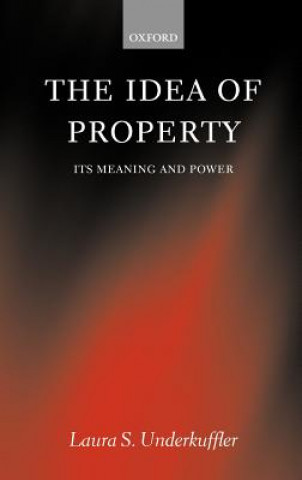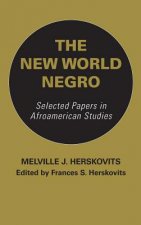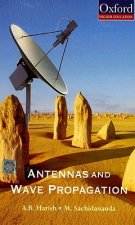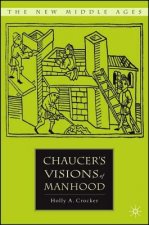
Doručení
Nákupní rádce





Nehodí se? Vůbec nevadí! U nás můžete do 30 dní vrátit
 Dárkový poukaz
V libovolné hodnotě
Dárkový poukaz
V libovolné hodnotě
S dárkovým poukazem nešlápnete vedle. Obdarovaný si za dárkový poukaz může vybrat cokoliv z naší nabídky.
Idea of Property
 Angličtina
Angličtina
 475 b
475 b
30 dní na vrácení zboží
Mohlo by vás také zajímat


Legal scholars and philosophers have long been engaged in what has been called 'the pursuit of the holy grail of property' - the secret of the internal structure of property in law. Attempts to capture the idea of property have encountered two fundamental problems. First, it has been notoriously difficult to advance beyond the observation that property involves 'ownership' of 'things', with the incidents of ownership and the list of things owned an essentially descriptive task. Second, it is difficult to explain the wildly inconsistent power that property rights - even when identified - seem to enjoy. In this book, Professor Underkuffler advances our understanding of what property is, as an idea, and the power that claimed property rights should have against competing public interests. There is, she argues, a deeper analytical structure of the idea of property that we can uncover, and - as a result of that discovery - deeper reasons that we can find for property's variable power. It is not a random or unprincipled event that property generally protects in cases involving land titles or patent claims, and fails to protect in cases involving environmental regulation or redistributive taxation. She argues that these results are driven - indeed, predetermined - by the nature of property, as an idea, and the conflicts of that idea with competing public interests. The implications of this book are far-reaching. It explains and justifies - on new grounds - why some property claims are traditionally powerful in law, and others not. It suggests how property rights in controversial or emerging areas should be treated, such as those involving the body as property, personal information as property, cultural property, and state redistributive claims. Finally, it establishes why the protection of property is, in fact, necessarily different from freedom of speech, freedom of religion, due process of law, and other rights - necessitating its different treatment, and lesser protection, as a constitutional right.
Informace o knize
 Angličtina
Angličtina
Kategorie




 Jak nakupovat
Jak nakupovat



















